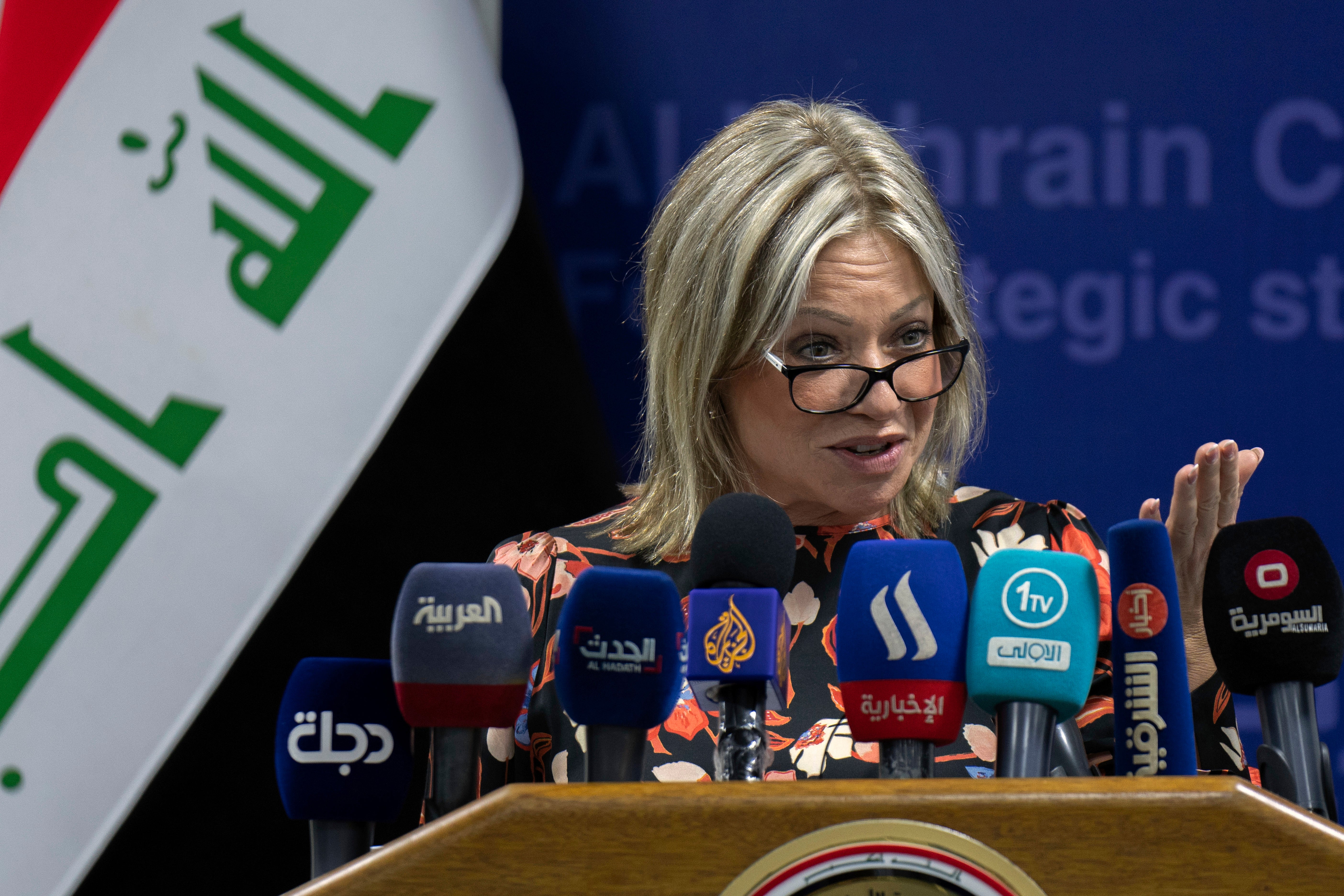UN envoy warns more attacks on Iraq threaten its hard-won stability
Iraq’s government is focused on avoiding a domestic or regional spillover of the Israel-Hamas war but continuing attacks on the country threaten its hard-won stability, the U.N. envoy for Iraq is warning

Iraq’s government is focused on avoiding a domestic or regional spillover of the Israel-Hamas war but continuing attacks on the country threaten its hard-won stability, the U.N. envoy for Iraq warned Tuesday.
With the war raging in Gaza, Jeanine Hennis-Plasschaert told the U.N. Security Council that “the Middle East is at a critical juncture” and “the same is true for Iraq.”
Attacks originating from inside and outside Iraq will not only undo the country’s stability but “other achievements made in the past 18 months,” she said, adding that “messaging by strikes only serves to recklessly heighten tensions, to kill or injure people and to destroy property.”
She pointed to the Jan. 28 drone strike on a Jordanian facility hosting U.S. forces fighting Islamic State extremists that killed three U.S. Army members and injured many more – and to the U.S. response with 85 airstrikes in Iraq and Syria against sites used by Iranian-backed militias and the Iranian Revolutionary Guard on Feb. 2. Both Iraq and Syria claimed civilians were killed and injured, and property destroyed.
Hennis-Plasschaert said many Iraqis were also shocked at an Iranian missile attack in mid-January on the northern city of Irbil, the seat of Iraq’s semi-autonomous Kurdish region, which killed civilians and was at odds “with the great efforts made on the Iraq-Iran security agreement.”
“Rather than shows of force, all efforts should center on safeguarding Iraq from being drawn in any way into a wider conflict,’ she said.
The U.N. envoy urged restraint from Iraq’s armed groups, its neighbor and other countries, saying this is “crucial” for the country’s stability and progress.
“With Iraq cloaked in an already complex tapestry of challenges, it is of greatest importance that all attacks cease,” said Hennis-Plasschaert, who announced that after five years in Baghdad as the U.N.’s special representative she will be departing at the end of May.
Russia called a council meeting Monday on the U.S. airstrikes in Iraq and Syria, and its deputy ambassador, Dmitry Polyansky said that despite the security successes achieved by Baghdad, “the situation on the ground is tenuous.”
He again blamed the United States for attempting to transform Iraq “into a stage for geopolitical score-settling to advance their parochial internal agendas” against a backdrop of its failed policy for a Mideast settlement and the current presidential election campaign.
U.S. deputy ambassador Robert Wood countered that Iran-aligned militia groups “threaten to undermine Iraq’s hard-fight gains” since Islamic State extremists were defeated seven years ago.
“Since October 2023, these groups have attacked U.S. and coalition forces in Iraq, Syria and Jordan over 165 times,” causing deaths and injuries, including among Iraqi forces, he said.
Wood said the U.S. is waiting for recommendations from an independent review on how the U.N. political mission known as UNAMI “can help further Iraq’s plans to build a sustainable future for its citizens and adapt to its political transition and ever-changing security needs.”
Iraq’s U.N. Ambassador Abbas Al-Fatlawi told the council his country is seeking to regain the country's "leading role” in the region and the world, outlining steps it is taking internationally and domestically.
He condemned “American, Turkish and Iranian aggressions against Iraqi territory” which violate its sovereignty, and warned of the danger of expanding the Israel-Hamas war and its continuation.
Al-Fatlawi said Iraq and the United States are conducting a first round of talks on the future presence of U.S. and coalition forces fighting the remaining Islamic State fighters, and discussed drawing up a timeline for their drawdown “in a manner that would guarantee a smooth transition.”
Bookmark popover
Removed from bookmarks